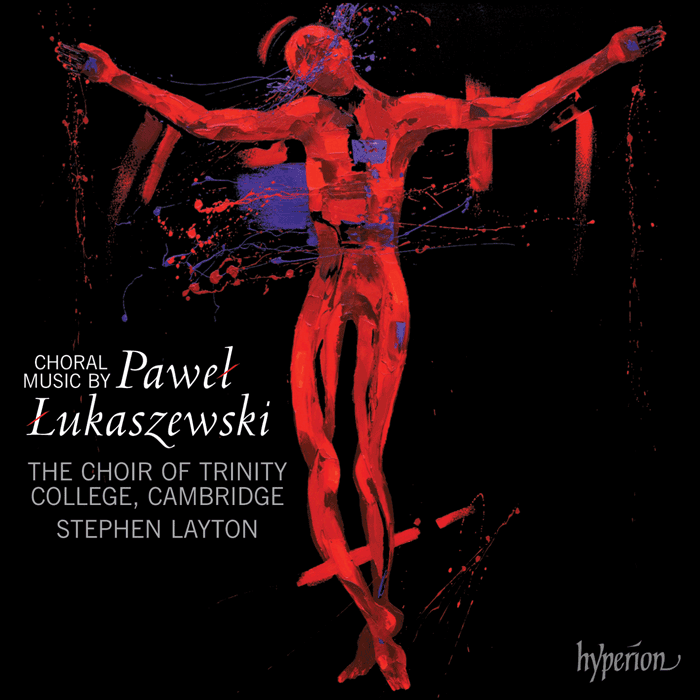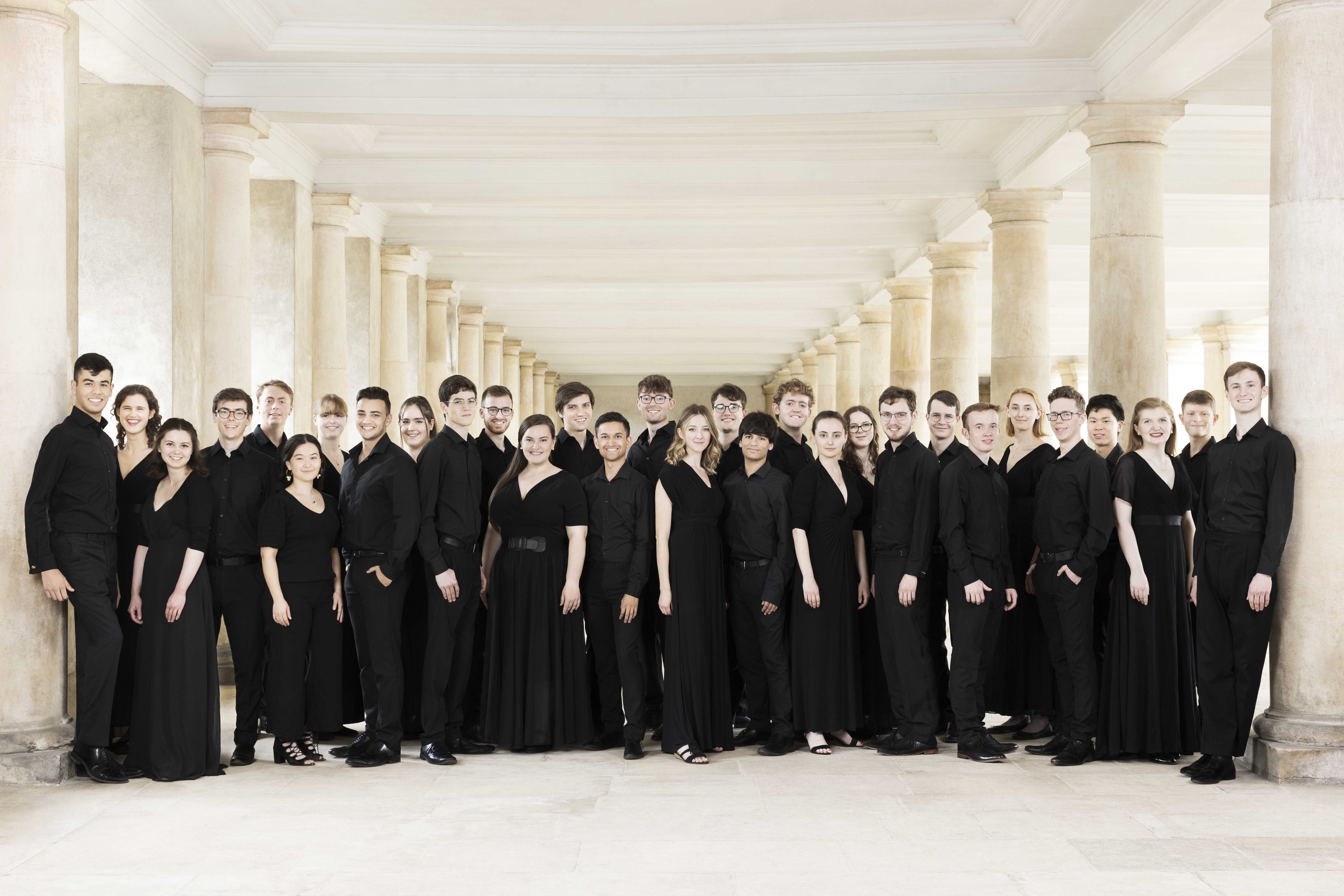Lukaszewski - Choral Works - Musical Criticism.com
> See recording details...Stephen Layton adds yet another accomplished choral recording to his discography with this release, which concentrates exclusively on the devotional music of the emerging Polish composer Paweł Łukaszewski. Like the Veljo Tormis release before it, this new disc contains music of outwardly simple means – in this case a (rich) extended tonality, ternary forms, generally uncomplicated textures and pulse-based rhythmic patterning – that nevertheless appears utterly individualistic, and effective. Łukaszewski uses simple conceits such as clashing metres, broad contrasts of dynamics within and across phrases, and unorthodox accentual patterning to illuminate his very direct, creative music. His use of tonality for example, which is organised around a loosely diatonic framework in which superimposed intervals and added-note chords enrich the largely non-hierarchical triadic centres, is typical of his fresh way with simple, customary material. His style connects him, appositely, to medieval composers of sacred music, but also places him at the forefront of the more conservative wing of contemporary composers largely active within the sacred sphere.
The stall of composer and performers is set out clearly and forcefully in the first pieces on the disc, three selections from the seven-section Beatus vir cycle (which can be performed as a unit, or not). The first hymn, dedicated to Saint Paul, traces out an arc from the delicate, syncopated interlocking fifths of the opening, through vociferous alleluias, sudden hushed close harmony, robust three part counterpoint, right through to a recall of the opening that rounds out the little 150 second drama very well. The second likewise makes much of sudden contrasts of simple conceits, with the diatonic 6/8 opening butting up against a diversified texture where different strata of activity (pedal, melody, oscillating high lines) all plead to St. Anthony to pray for us to the Son of God. The third, the most expansive of the three, again plays with arch form, now moving from the opening A minor material, through a drone passage and a major-mode transfiguration of the opening material, to a final, moving return to the minor.
The Choir of Trinity College, Cambridge show themselves to be in fine form from the off, with impeccable tuning, solid projection, and a good sense of ensemble, despite some slippage of unity in the first hymn (albeit alongside excellent execution of the difficult syncopated opening) all in evidence. Their voices blend well together; they bring a rich, lustrous sound to the composer’s full harmonies and a bright, alert tone to the light opening of the middle hymn. Layton is his typically fluent self; he shows an inimitable mastery of the unusual stress patterns and metrical clashes, and always brings a sense of grace and fluidity to the performances of these somewhat inconstant scores. The third section, to Saint Martin, is particularly impressive, with the conductor keeping a tight leash on the dynamic transformations, before creating a momentous final cadence, where the closing chords float to our ears from somewhere far beyond the realm of the physical. This graceful effulgence in performance continues into the next three items, the Two Lenten Motets, and the youthful Ave Maria. In the motets the stock harmonic progressions that underpin the writing matter little in the face of such expressive (yet measured) singing. Similarly the relatively innocent Ave Maria is beguiling. Here the simplest diatonic and textural setting is made potent as a result of the subtlety of the dramatic ear of the composer. The sensitivity and nuance of the carefully managed reading, which again closes on one of those golden chords that seem to contain in sound all the stillness and tranquillity of enriched silence (the exposed scoop of the soloist about a minute in does not tarnish the general achievement), is decisive too.
At the heart of the disc is the cycle of seven O Antiphons (text taken from the seven verses of the Advent hymn O Come, O Come, Emmanuel that plead with God for salvation) which come next. As expressively diverse as the opening three hymns, this cycle displays an astonishing facility for direct expression out of the simplest means on the one hand, and an earnest ability to express the spiritual significance of the texts on the other, that belie the fact that it is the work of a young man who was only barely out of his twenties. O Adonai, for example, is a strident example of Łukaszewski’s craft. Over its nine-and-a-half minutes it expands in texture and complexity from the single-voiced chant of the opening, through sudden clashing duple and triple metre swells on the titular declamation, back to a more diverse, but equally becalmed and solemn assertion of the opening material, now transformed in density and force. Like the other pieces on the disc though its dynamic eclecticism never feels artificial or gauche; composer and conductor always instil a sense of organicism and inevitability to the music, and the performances. The singers again realise the burnished harmonic writing, particularly in the dramatically condensed O Oriens, with great sympathy and poise. The immediacy of much of the music can be attributed also to the engineers, who have created a richly resonant sound palette entirely beneficial to the style of interpretation, and music, here present. The emotional core of the cycle is the brooding O Clavis David, with its lush harmonies and its effective use of whispering as a devise for creating contrasts of colour. The performance is suitably impassioned, with the peak reached being always kept in mind by the conductor as a rhetorical totem around which he swings his reading. Two smaller works close the disc. The more syllabic, texturally homogenous Psalm 102 works well set against the preceding antiphons, as its much greater concentration of material, and correspondingly expanded textual base, sounds distinct and quite fresh in comparison. It is somewhat limited in scope, but the committed and forceful (if a little dull) performance ensures it doesn’t quite outstay its welcome. Closing proceedings is the most recent work of the collection, the Nunc dimittis of 2007, dedicated to Stephen Layton himself. It is a hushed, humble little hymn that proceeds elegantly to its Satyagraha-like final page, where the repeating aoelian lines move to a graceful and moving close that is handled delicately by the performers, whose sense of the poetry of this music is now clear, and convincing.
Stephen Graham

Hyperion Records CDA67639
